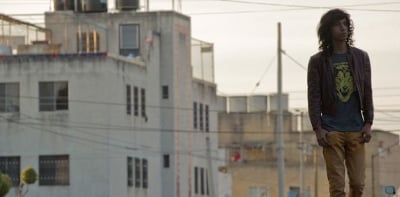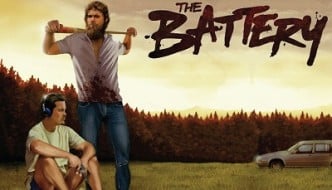Locke – film review
May 29, 2014
Locke, 2013. Directed by Steven Knight.
Screened at Hyde Park Picture House
When I first heard the concept behind Locke, I was intrigued to say the least. The entire film comprises of one man admitting his “one time” infidelity to his wife, boss, and colleagues, and then attempting to doggedly pick up the broken pieces of his life– all behind the wheel of a BMW X5.
The film lasts for an hour and a half; the duration of Ivan Locke’s journey from Birmingham to London to be there for the birth of his illegitimate child, and it is filled from the outset with powerful, real, human emotion. Hardy’s face becomes the entire film, and he is able to captivate the audience with every tiny gesture. In a film with the front seat of a car as the entire set, Hardy had near nothing to work with, yet his facial expressions, running his hands through his hair as he hears his wife cry… such a human situation is dramatised tenfold. The tension reaches a tipping point with the electronically vapid “call waiting” interrupting Locke as he struggles to save his £11m concrete pour, and strives to be like concrete himself.
The script is beautifully poetic at times, with lines like “do it for the piece of sky we are stealing with our building!” However, it can sometimes be slightly overdone, as when Locke glares into the dark recesses of the backseat to slam his father, who we suppose let him down as a child. In these monologues, director Steven Knight reveals too much of Locke’s psyche. We are no longer inferring his emotional turmoil from the subtle dullness in his eyes, or his slumped posture, yet I would argue that in this setting, the less-is-more style of acting is key.
The same goes for the voices of the supporting actors; Locke’s wife, voiced by Ruth Wilson, is an incredible source of tension in the film. As the audience sees her name flash up on the dashboard screen, we – along with Locke – wonder if we will hear her tears, screams, or scorns. And we too desperately try to decide which is worse. Or are the voices of his sons the worst, tentatively asking if Dad will ever come home? Or the cries of Bethan through her labour, or the colleague that is attempting to drink away his anxiety? As these people are continuously contributing to the tension, the pain and thrill of the film, we are allowed the rare freedom of envisioning them for ourselves.
Despite the ending being – intended, I’m sure – unsatisfactory and inconclusive, the actual style of Locke as a film is a successful experiment. Hardy pulls off masterful acting in a limited situation to say the least, mesmerising us with his determined, at times slightly deluded, voice. The only thing I struggled with was the camera action inside such a limited space; in a film where smallness is everything, the continuously shifting camera angles on Hardy’s face became bewildering. Hardy’s minute gestures make the film – all he needs here is a fixed visual.
Phoebe Alexander
Filed under: Film, TV & Tech
Tagged with: film reviews



Comments